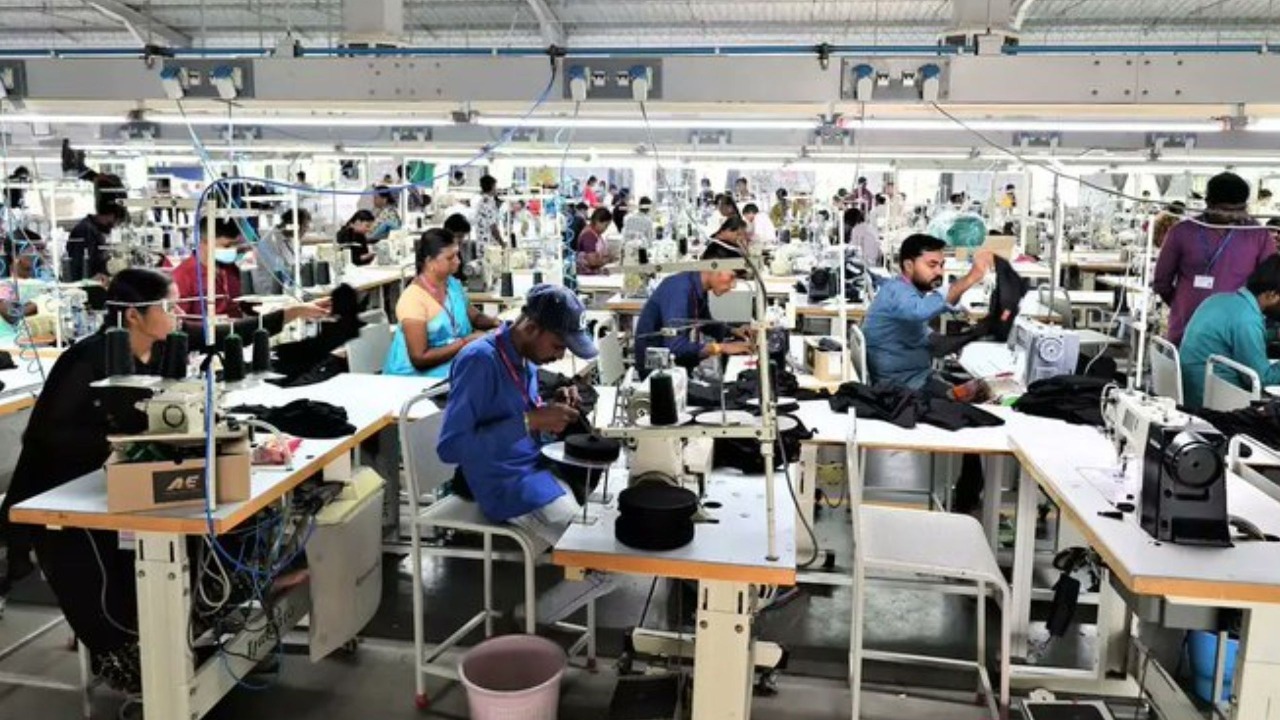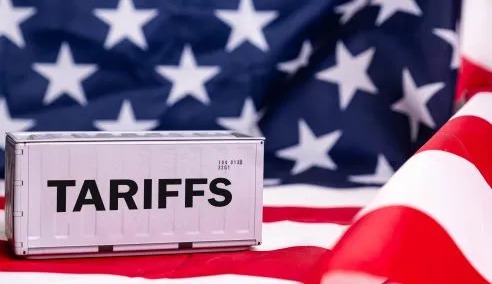 Image Source : Diya TV
Image Source : Diya TV
The recent tariff increase imposed by the United States on Indian imports has sent ripples throughout India’s knitwear export sector, with industry stakeholders forecasting a staggering Rs 2,000 crore loss in monthly business. As the US doubles import tariffs to 50%, many knitwear manufacturers and exporters find themselves grappling with shrinking profit margins, heightened competition, and shrinking order volumes, which threaten the sustainability and growth of this important sector.
Key Highlights Of The Tariff Hike Impact
The US, India’s largest export market for knitwear, raised tariffs from 25% to 50% effective August 27, 2025, targeting sectors tied to Russian oil purchases.
Knitwear exporters project a monthly decline in business revenue of approximately Rs 2,000 crore, with several already witnessing order cancellations and delays.
Tariff raise significantly increases landed cost for US importers, pushing buyers towards cheaper alternatives from Bangladesh, Vietnam, and Cambodia.
The tariff shock comes amid already challenging market conditions, including rising raw material costs, labor shortages, and supply chain inefficiencies.
Despite government appeals, no immediate relief on tariff rates is forthcoming, leading exporters to revisit sourcing strategies and cost structures.
Understanding The Tariff Hike Context
The US government’s tariff hike follows its policy stance against countries including India purchasing discounted Russian crude oil, deemed contrary to its sanctions regime. The tariffs are applied broadly across multiple product lines, including textiles, a key pillar of India’s export economy employing millions.
India’s knitwear industry, known for quality and competitive pricing, faces an uphill battle in maintaining market share under doubled tariffs. The sector holds significant export value with estimated annual shipments exceeding $6 billion to the US alone.
Real Voices From The Knitwear Sector
Exporters from key knitwear hubs in Tirupur, Ludhiana, and Mumbai report immediate impacts—buyers renegotiating contracts, delayed payments, and difficulty locking new orders. Small and medium enterprises sense existential threats as increased costs erode profitability. Industry bodies are pressing the government to intensify diplomatic efforts and seek exemptions or phased tariff rollbacks.
Adapting To A New Market Reality
With the tariff-induced pressure, exporters are exploring various countermeasures:
-
Enhancing product diversification to focus on non-tariff vulnerable items.
-
Strengthening presence in emerging markets less impacted by US trade policies.
-
Investing in value-added manufacturing to justify price premiums.
-
Leveraging government incentive schemes and export promotion councils for support.
The Broader Export Ecosystem Under Strain
Beyond knitwear, the overall textile and apparel sector anticipates collateral damage, affecting raw material suppliers, logistics providers, and ancillary industries. The tariff hike reverberates through the supply chain, highlighting vulnerabilities in India’s dependence on US markets and emphasizing the need for recalibrated trade diplomacy.
Policy Responses And Industry Outlook
The government has signaled intent to intensify negotiations with US counterparts, emphasizing India’s compliance with global trade norms and highlighting the disproportionate impact on Indian exporters. Concurrently, policy makers are fast-tracking diversification efforts under initiatives like the Production Linked Incentive (PLI) scheme for textiles.
Industry experts remain cautiously optimistic. While the short-term outlook challenges knitted garment exporters, the crisis may catalyze structural reforms, improved competitiveness, and broadened market footprints for Indian textile exports.
Conclusion: Navigating Uncertainty With Resilience
The US tariff hike constitutes a serious challenge for India’s knitwear exporters, threatening sizeable business losses and market disruptions. Yet, adaptability, strategic innovation, and focused policy interventions can help navigate the short-term turbulence and pave the way for sustainable export growth.
Sources: Times of India, Economic Times, Business Standard, Ministry of Commerce & Industry
Advertisement
Advertisement







